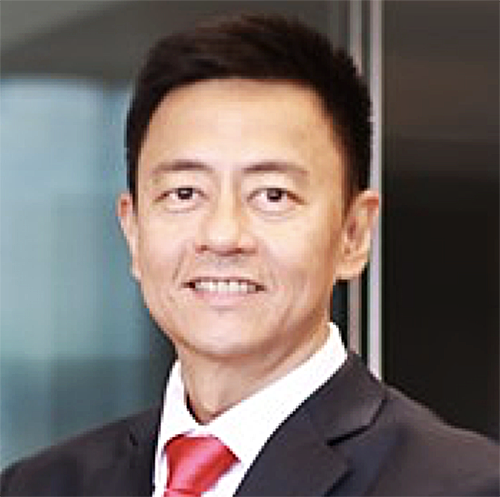After decades of passive investment choices, Japanese investors are finally embracing alternative investments.
Last month, confident of hitting the holy grail of 2% inflation, Bank of Japan (BoJ) governor Kazuo Ueda finally broke his country out of its 17-year-long fiscal chrysalis by discarding its negative interest rate policy and yield cap programme.
The prudent BoJ decided to steer short-term interest rates within a range zero to 0.1%, in a move that represented its first rate hike since 2007.
Although a relatively diminutive shift, the change was seen by many observers as tectonic, and is perhaps indicative of a newer, bolder investment outlook establishing its presence in the modern Japanese institutional investment psyche.
On the back of the BoJ action, in another uncharacteristic move, the Japanese Government Pension Investment Fund (GPIF), which manages assets of about US$1.5 trillion, has sent out a Request for Information (RFI) on illiquidity assets.
In its RFI dated March 19, the fund asked for basic information on illiquidity assets, including infrastructure, real estate and private equity, together with basic information on forests, farmland, gold and, to the surprise of many observers, crypto assets.
Even earlier, Japan’s Nomura Asset Management announced in February that it will soon be offering domestically an alternative investment solution called Nomura Alternative Connect (NAC).
The NAC will provide access to alternative investment products from established global alternative asset players such as sector heavyweights KKR, Carlyle, Blackstone, Natixis and Amundi.
Nomura says the move will allow Japanese-based investors to construct a diversified portfolio made up of several asset classes such as private equity, private debt, infrastructure and real estate, across a number of geographies and diverse investment strategies.
Moving static wealth
These recent actions underpin the Japanese government's determination to make Japan a leading asset management centre in Asia to compete with the well-established wealth hubs of Hong Kong and Singapore. And although these efforts are moving at a glacial pace, there is now forward motion.
The Japanese government is also encouraging more people to invest their savings by expanding the investment limits and scope of the Nippon Individual Savings Account (NISA), a tax-free investment programme for individuals.
A recent move to allow investment trusts’ inclusion of unlisted shares, accessible through the NISA, should also help stimulate an increase in retail access to alternative assets.
Japan-based investors are allocating more to alternative assets (private equity, venture capital, private debt, infrastructure, real estate, and hedge funds), says Preqin, a specialist company in alternatives data and insight, citing findings from its biannual investor survey.
Preqin reports that the appetite for alternatives is accelerating with the number of investors in Japan actively investing in alternatives growing by over 50% since 2019.
Investors in private debt have increased fastest, especially in 2023, and even some of the more conservative investors, such as Japan’s insurance companies, are now looking into the asset class for the first time.
Japanese households have about US$14 trillion in assets as of June 2023, but half has been sitting in cash and deposits, according to the report. It should come as no surprise then that both public and private capital markets are anxious to unlock the potential of this massive dormant wealth.
The report reveals that Japan-based investors are most likely to increase their investment into private debt over the 12 months from November 2023, compared with investment in other alternative asset classes. About 90% of Japan-based investors foresee the asset class performing either the same or better during the period.
Craving higher returns
Most survey respondents believe the macroeconomic cycle, along with the equity and real estate market cycles, is at the start of a decline. In contrast, the investors’ outlook was more positive for the debt markets.
Although Japanese equities have performed well with the Nikkei 225 recently hitting an all-time high, the growing need to diversify away from the traditional portfolio structure is another key driver for investors in Japan to consider alternative investments.
While investors are active, experienced and comfortable in investing in traditional assets in developed markets, after so many years of torpid growth, the need for higher returns is compelling more to look at alternative investments.
As Preqin points out, with the country’s frequently highlighted ageing demographics, it is possible there will be shortfalls in meeting Japan’s public pension liabilities in the future, which may have to be met by drawing on pension reserves.
Improving investment returns for these institutions to increase reserves and ensure the long-term stability of the system is essential, and is leading to more Japanese institutions venturing deeper into the alternative asset vault.
Angela Lai, Singapore-based vice-president and head of Asia-Pacific and valuations, research insights, at Preqin, says: “While our investor survey shows that Japan-based investors tend to target lower returns and prefer less risky strategies, recent conversations with them reveal that this is slowly changing as they build their experience in proactively sourcing investments from a wider risk spectrum.
“Furthermore, newer groups of investors are emerging with potentially more flexibility to allocate, such as private wealth and retail segments, and this is attracting interest from fund managers worldwide.”
Not going green
While many investors around Asia have been sucked into the ubiquitous ESG investment vortex, a little over half of the Japan-based investors surveyed indicate that they are either unsure or have no plans to put in place an ESG investment policy.
This trend might change as the country’s institutional investors such as the GPIF allocate more funds to sustainable investments and the Japanese government aligns its regulatory framework to match its peers including enforcing mandatory ESG disclosure for public companies.
However, recent outflows from ESG funds in Japan show there may be competing priorities particularly for the smaller investors seeking better returns to meet the higher living costs.









